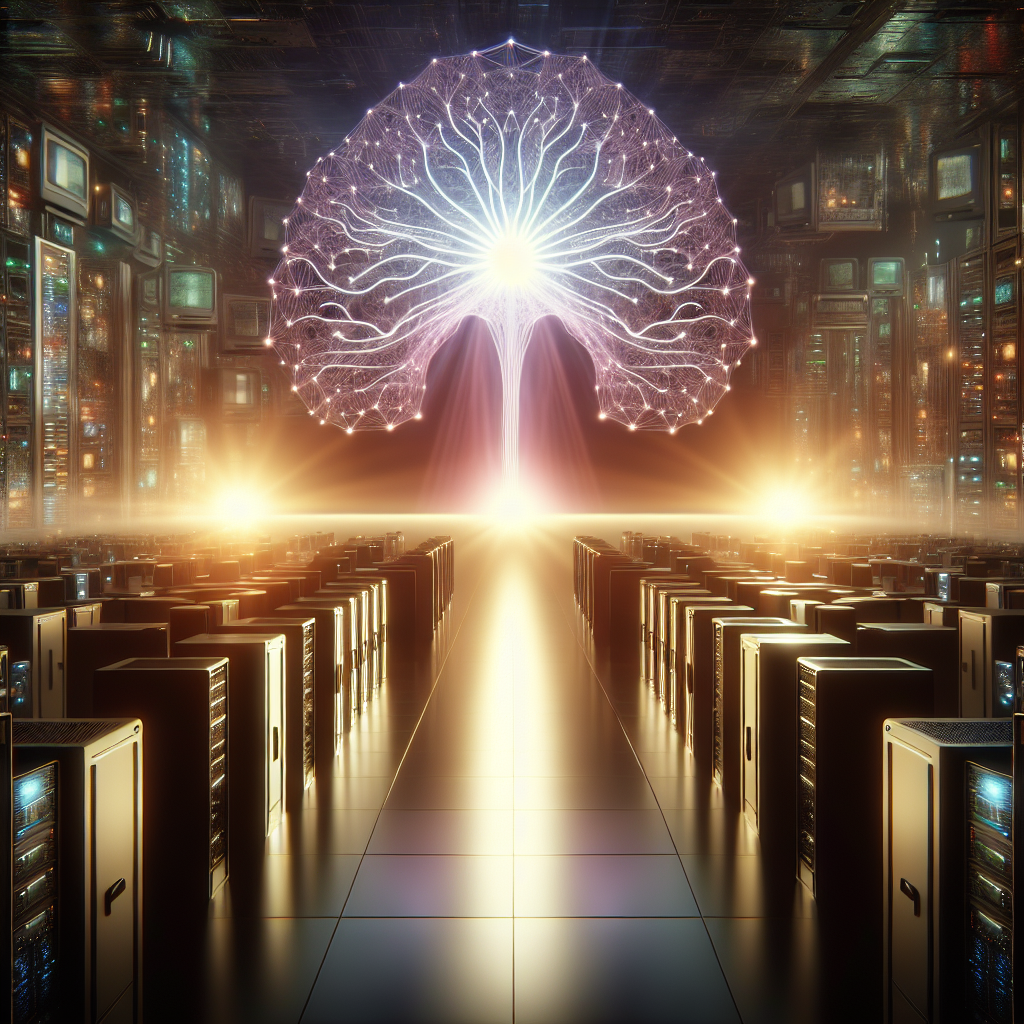The Rise of AGI: How It Will Revolutionize the Tech Industry
Artificial General Intelligence (AGI) is a term that refers to a type of artificial intelligence that possesses the ability to understand, learn, and apply knowledge across a wide range of tasks and domains, much like a human being. While current AI systems are specialized in performing specific tasks, AGI aims to replicate the general cognitive abilities of humans, leading to potentially groundbreaking advancements in technology and society as a whole.
AGI has long been a goal of researchers in the field of artificial intelligence, with the ultimate aim of creating machines that can think and reason like humans. While we are still far from achieving true AGI, recent advancements in machine learning, deep learning, and neural networks have brought us closer to this goal than ever before. In this article, we will explore the rise of AGI and how it is set to revolutionize the tech industry in the coming years.
The Potential of AGI
The development of AGI has the potential to revolutionize virtually every aspect of society, from healthcare and finance to transportation and entertainment. With the ability to understand and learn from vast amounts of data, AGI could make significant advancements in fields such as drug discovery, disease diagnosis, and personalized medicine. In finance, AGI could be used to predict market trends, automate trading, and optimize investment portfolios. In transportation, AGI could lead to the development of self-driving cars, drones, and delivery robots that can navigate complex environments with ease.
In addition to these practical applications, AGI could also have profound implications for the way we interact with technology and each other. Imagine a world where virtual assistants can hold natural conversations, understand context, and anticipate our needs before we even ask. AGI could also revolutionize education by providing personalized learning experiences tailored to each individual’s strengths and weaknesses. In entertainment, AGI could create immersive virtual worlds, interactive storytelling experiences, and lifelike characters that blur the line between reality and fiction.
The Rise of AGI
The rise of AGI is being driven by advances in machine learning, deep learning, and neural networks, which have enabled AI systems to perform increasingly complex tasks with greater accuracy and efficiency. These technologies are based on the idea of training artificial neural networks to recognize patterns in data and make predictions based on that information. By feeding these networks vast amounts of data, researchers can teach them to perform tasks that were once thought to be the exclusive domain of human intelligence.
One of the key challenges in developing AGI is creating AI systems that can generalize their knowledge and apply it to new situations. While current AI systems excel at specific tasks, they often struggle to adapt to new environments or tasks that fall outside their training data. AGI aims to overcome this limitation by creating systems that can learn from experience, reason about complex problems, and make decisions autonomously.
The tech industry is already beginning to see the impact of AGI in areas such as natural language processing, image recognition, and autonomous driving. Companies like Google, Facebook, and Tesla are investing heavily in AGI research, with the aim of creating AI systems that can outperform humans in a wide range of tasks. As these technologies become more advanced and widespread, we can expect to see a wave of new products and services that leverage the power of AGI to revolutionize the way we live, work, and play.
FAQs
Q: What is the difference between AGI and narrow AI?
A: Narrow AI refers to AI systems that are designed to perform specific tasks, such as speech recognition, image classification, or game playing. AGI, on the other hand, aims to replicate the general cognitive abilities of humans, allowing AI systems to learn, reason, and adapt to new situations like a human being.
Q: How close are we to achieving AGI?
A: While we have made significant progress in AI research in recent years, true AGI remains a distant goal. Researchers are still working to overcome a number of technical challenges, such as creating AI systems that can learn from limited data, reason about complex problems, and understand context. It is difficult to predict when we will achieve AGI, but many experts believe that it could happen within the next few decades.
Q: What are the ethical implications of AGI?
A: The development of AGI raises a number of ethical concerns, such as the potential for AI systems to outperform humans in a wide range of tasks, leading to widespread job displacement. There are also concerns about the potential for AGI to be used for malicious purposes, such as surveillance, manipulation, or warfare. As we move closer to achieving AGI, it will be important for researchers, policymakers, and industry leaders to work together to address these ethical issues and ensure that AI is developed and deployed in a responsible manner.
In conclusion, the rise of AGI has the potential to revolutionize the tech industry and society as a whole in ways that we can only begin to imagine. As researchers continue to make advancements in artificial intelligence, we can expect to see a wave of new products and services that leverage the power of AGI to transform the way we live, work, and play. While there are still many challenges to overcome, the future of AGI looks bright, and we can expect to see some truly groundbreaking advancements in the coming years.

